After waiting for its launch with desire, a few days ago Steam arrived at the game Dawn of Man, a city builder that escapes the topic of the Middle Agesto go much further back, until prehistory. Our goal will be to bring a settlement from the Paleolithic to the Iron Age with all the advances and changes that will mean for our society.
For its originality in the approach and some very good ideas, what would be a relatively simple game ends up becoming a well of hours from which it is difficult to escape. A twist to the genre that, however, sins of little ambition in its release.
The prehistoric city builder
With different levels and challenges under your arm that modify the difficulty or the time in which you start your campaign, the usual way is to plant yourself in an area of the scenario of your choice with just a couple of stores, a handful of villagers and the need to start growing before winter comes.
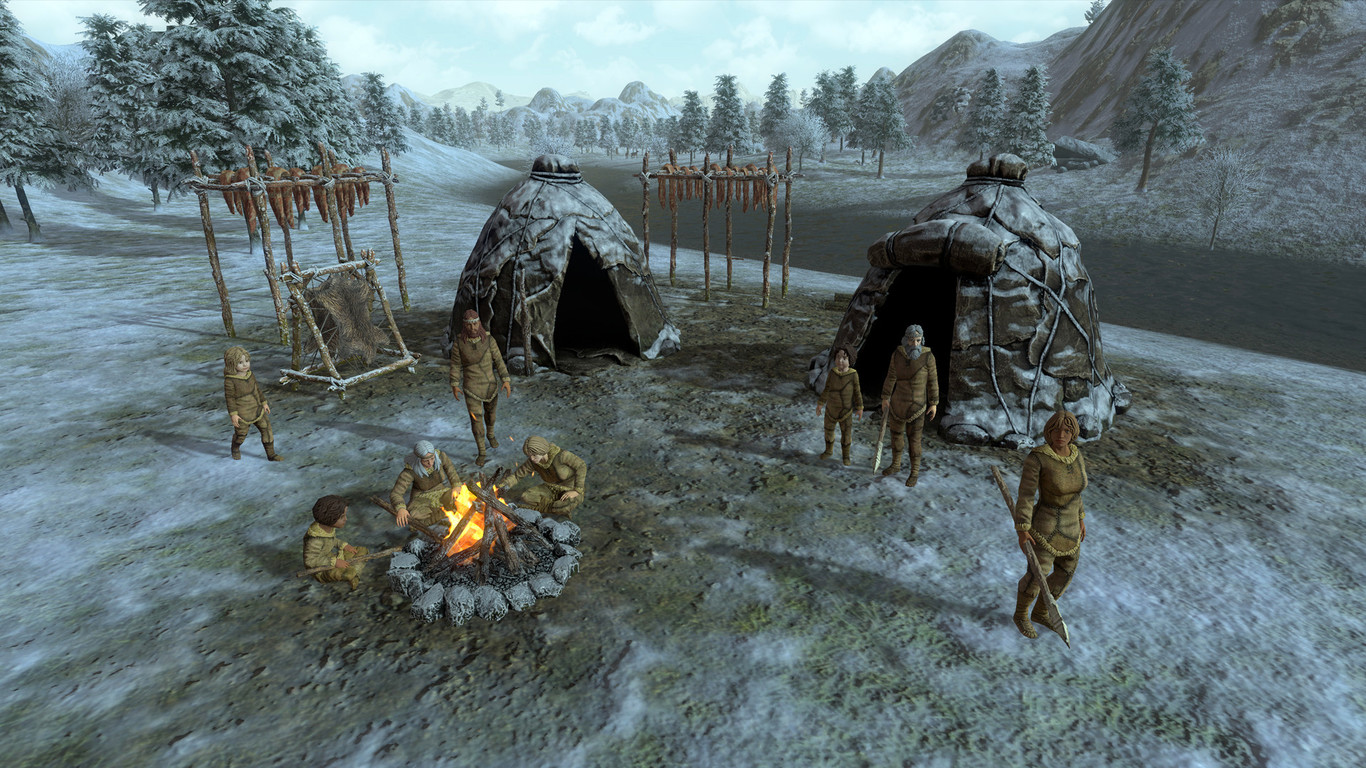
Your first goal will be the basics: create a position to make tools and get the necessary materials to facilitate your usual tasks. Thus, what at the beginning is to collect sticks and stones, it soon becomes cut trees and create extraction mines. From your good work at that point largely depends on everything that will come later, so it is more than advisable to embrace one of the best ideas of Dawn of Man: how it manages the automatisms.
The idea is that you can mark an area on the map and select it as a work area for a specific task: here they will collect berries, here they will hunt, here they will extract mud … The possibility of adding production limits and up to five villagers to that task, it facilitates that the obtaining of resources is as controllable as non-worrisome.
The objective is to create the best possible greased machinery so that, taking advantage of the arrival of new villagers who join your camp, you can add more and more works following the evolution demanded by the changes of time. With the arrival of the most advanced, what used to be a wooden harpoon with a single resource, then it becomes a fishing rod that requires sticks and stones, but also of linen thread that you previously harvested in the adequate station.
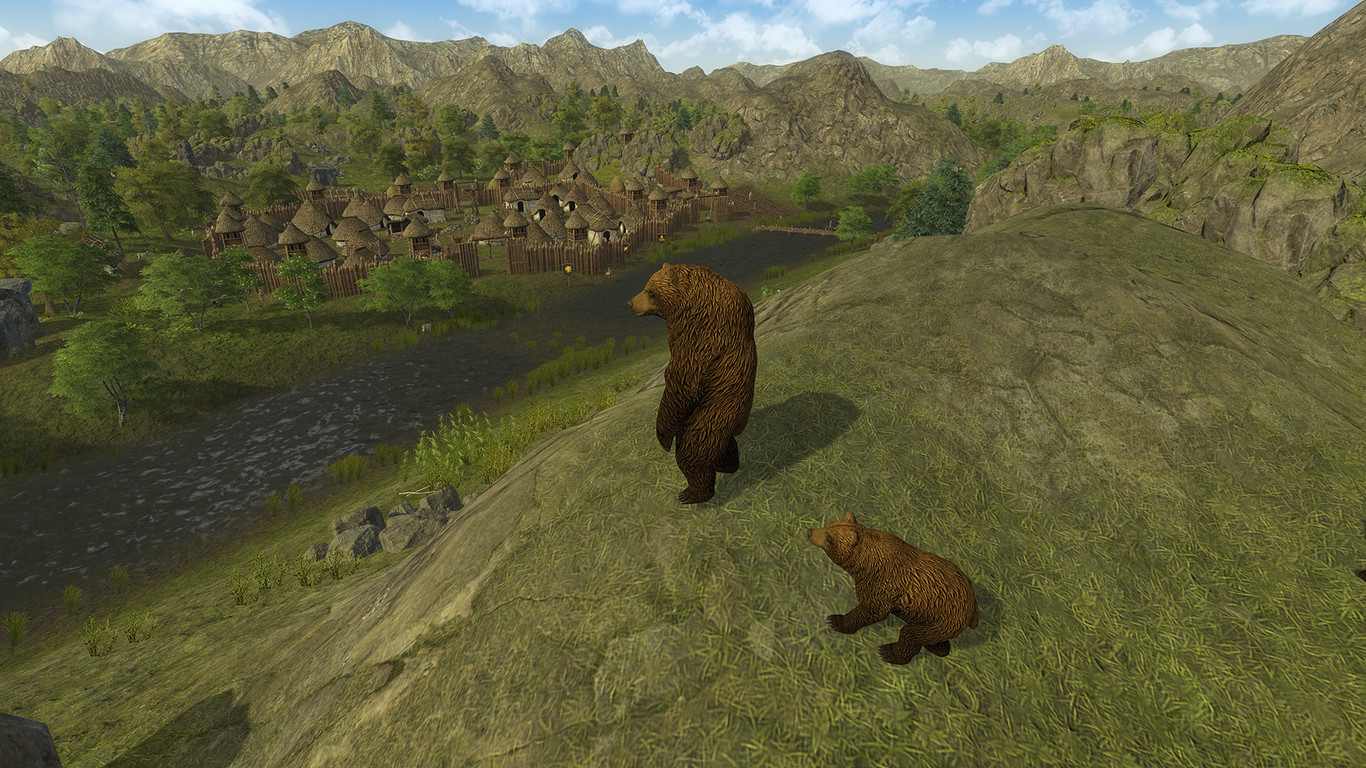
Good ideas very well executed
Playing with the idea of trying to pursue that realism, each season of the year requires specific care not only in the plantations. By the time winter arrives, the crops will have fallen and the number of animals available will be drastically reduced, so it would be better to have houses and warm clothes for your villagers, stables for your animals and food for all of them.
With a star rating system, new technologies are turning rudimentary tools into much more agile and effective options, especially when the needs of your town revolve around hunting and defense. Finding wounded or young prey is always more advisable than launching a mammoth hunt without the proper tools and, in the same way, jumping to the bronze age without the relevant weapons or defenses may mean that assailants reduce your village to ashes.
The evolutionary and technological tree works on the basis of points that you will acquire as the game progresses. Things like hunting the first species of an animal or survive the winter make the first bars of the village are very agile and entertaining. You will wake up with a couple of huts and within a few minutes you will have dogs there defending the settlement and structures with which to honor the dead and control the morals of your people.
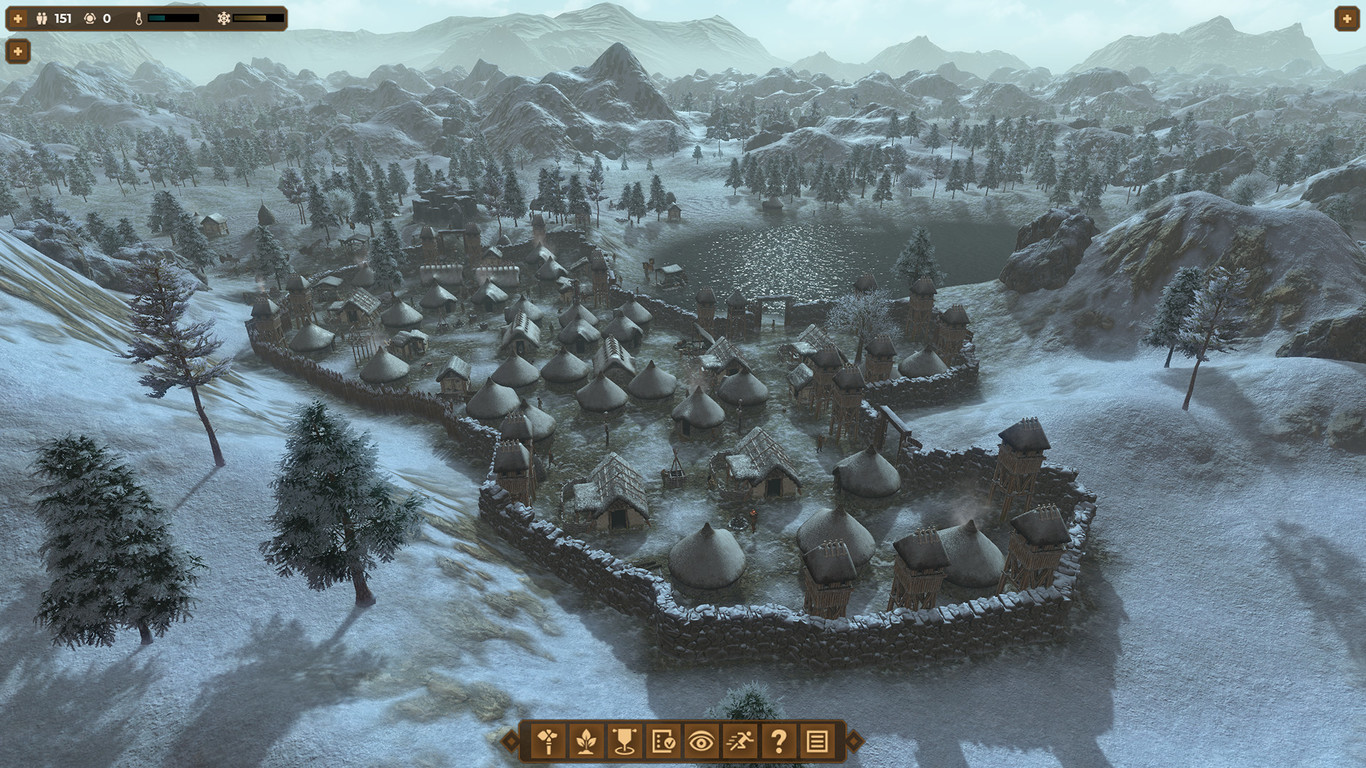
An entertaining approach focused on evolution and expansion that is constantly supported by the survival and control of resources. If you hunt in a specific area, the animals will stop going there with assiduity. If you exhaust the resources of a river, you should look for another area to fish or wait for them to replenish. The key is to find a sustainable balance so that, with a little skill, you can soon avail yourself of your own resources instead of going in your search beyond the mountains.
The majesty and future of a mammoth
Unfortunately, Dawn of Man’s initial enthusiasm is short-lived. The just hours to reach advanced ages and see how the game unbalances in an exaggerated way. What at a certain point meant having to face a bear for having something to put in your mouth, soon becomes huge amounts of food that overflows everywhere. What seemed a remarkable evolutionary leap with the creation of walls, soon reveals itself as a completely useless addition to the attackers in which you have invested a lot of time and resources.
The most frustrating thing is, incredible as it may seem, to take the trick to the game, reach that point where the village works like a Swiss watch and that, based on automatisms, your only job is to see how the points of evolution are coming with dropper until you get the 20 you need to keep growing.
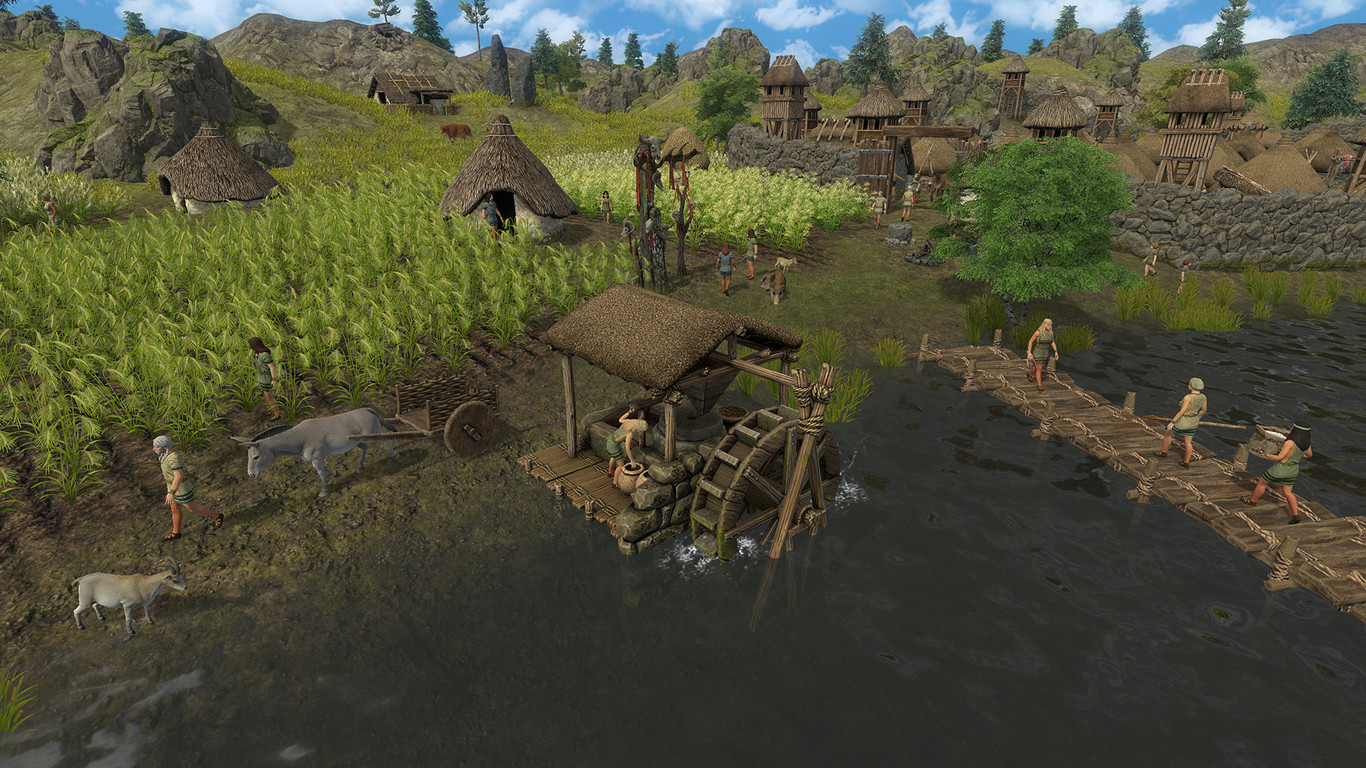
Despite a very careful interface, Dawn of Man forgets basic actions such as the selection of groups or the possibility of staggering tasks. Although the villagers are aware of the importance of certain actions to prioritize them, soon you will see how certain resources with different uses end up being used in very secondary functions instead of taking advantage of them for life or death needs.
That in advanced ages much of the evolutions are anecdotal or lower in number, only get those last measures are very uphill, avoiding to keep the player occupied and seeing you forced to touch up a couple of details here or there between periods of time that they lengthen several minutes.
Dawn of Man
| PLATFORMS | PC |
|---|---|
| MULTIPLAYER | Do Not |
| DEVELOPER | Madruga Works |
| COMPANY | Madruga Works |
| LAUNCHING | Now available |
| PRICE | 17.84 Dollars |
PROS
- Very original in its approach
- Very useful management mechanics
- Intense and fun during the first hours
CONS
- Slow and boring during the last hours
- Parco in selection options
- Evolutionary tree with few ideas

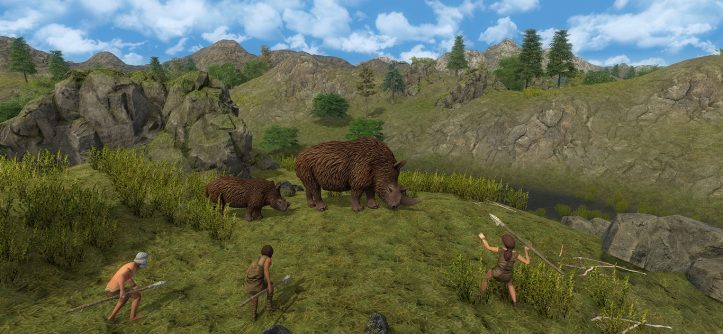



Leave a Reply